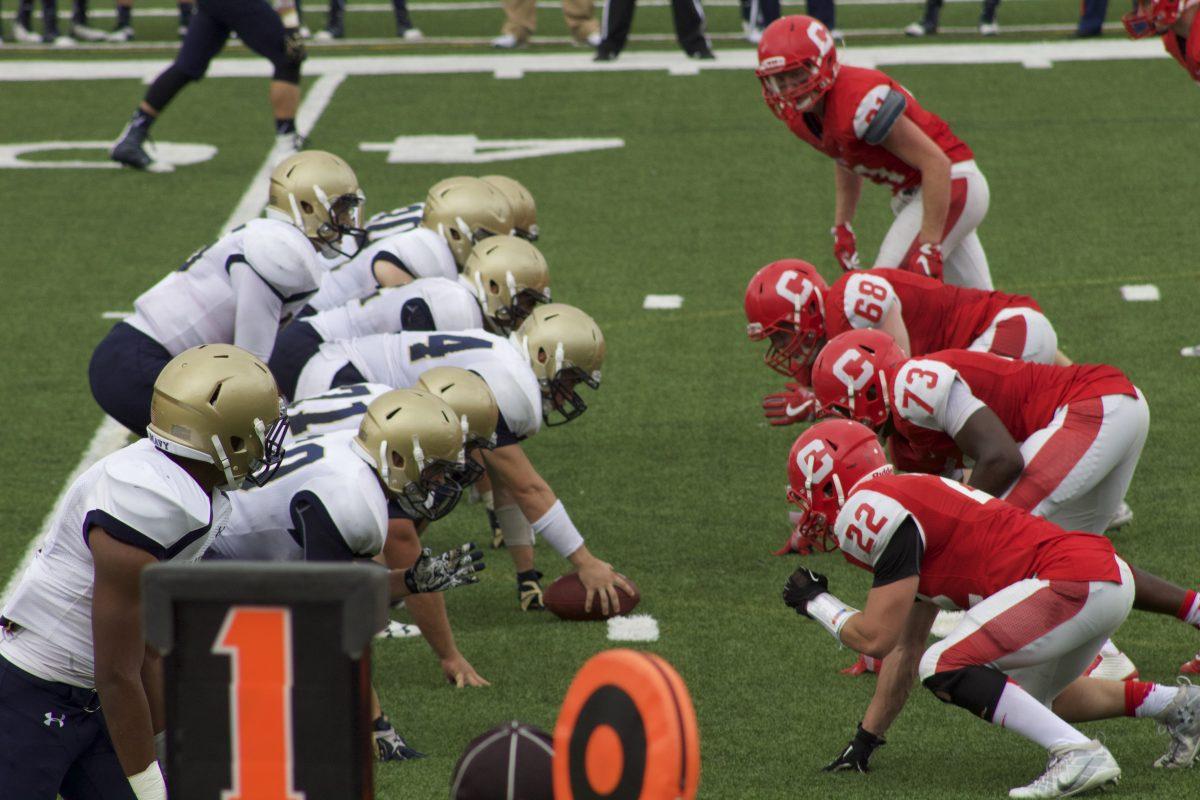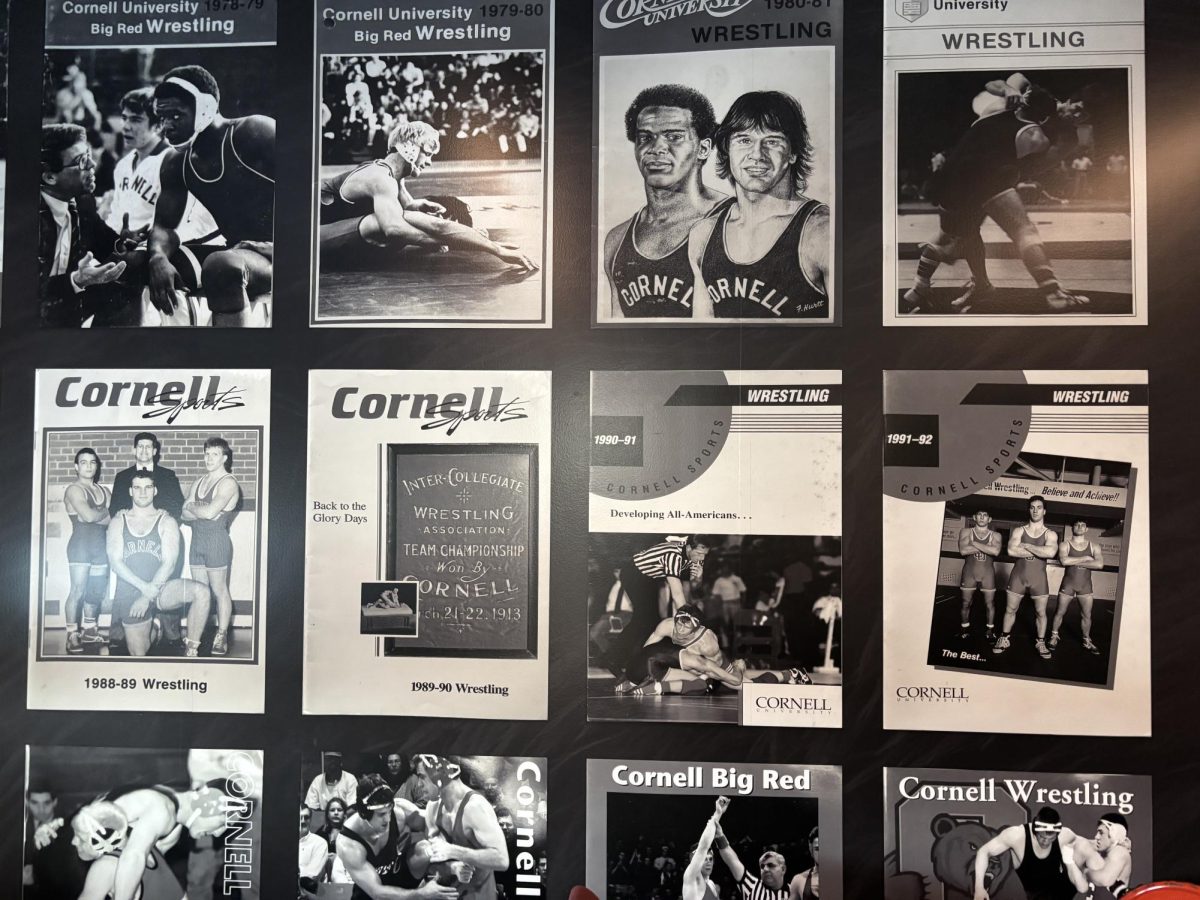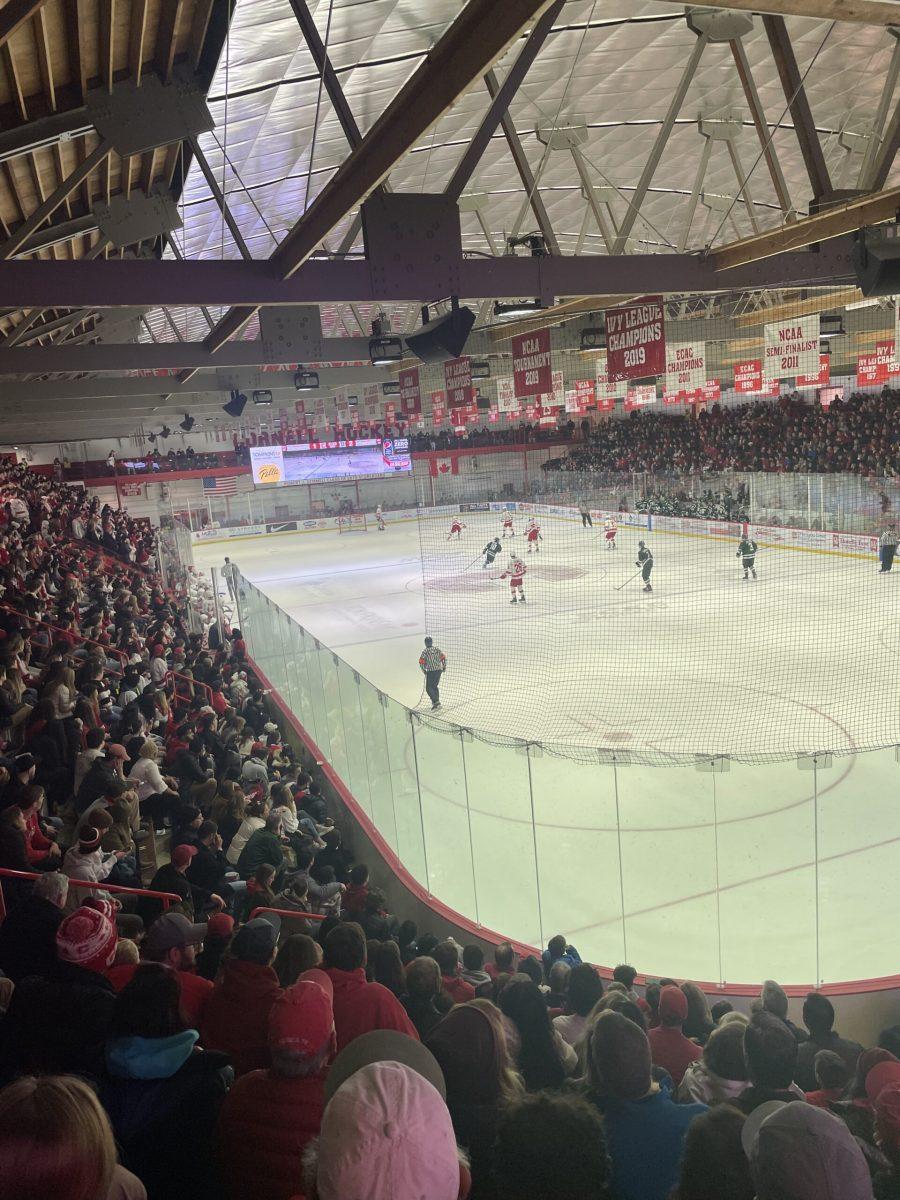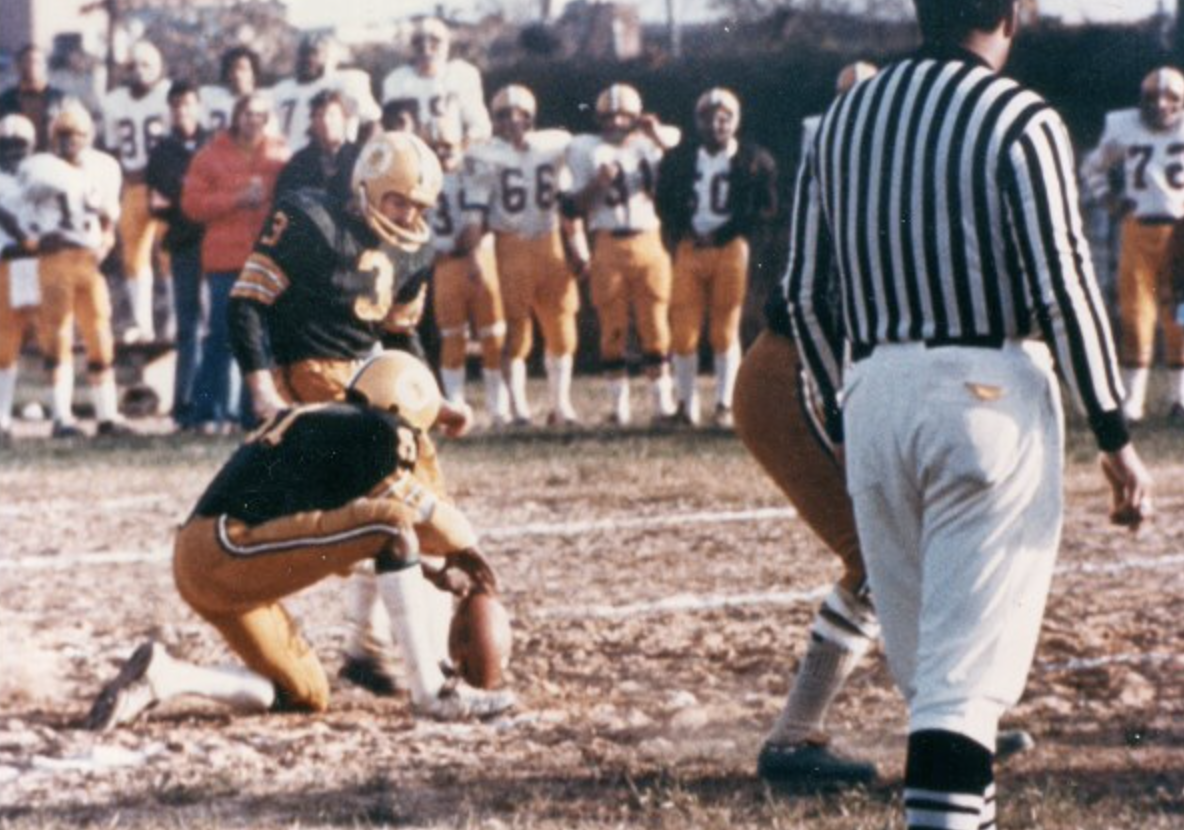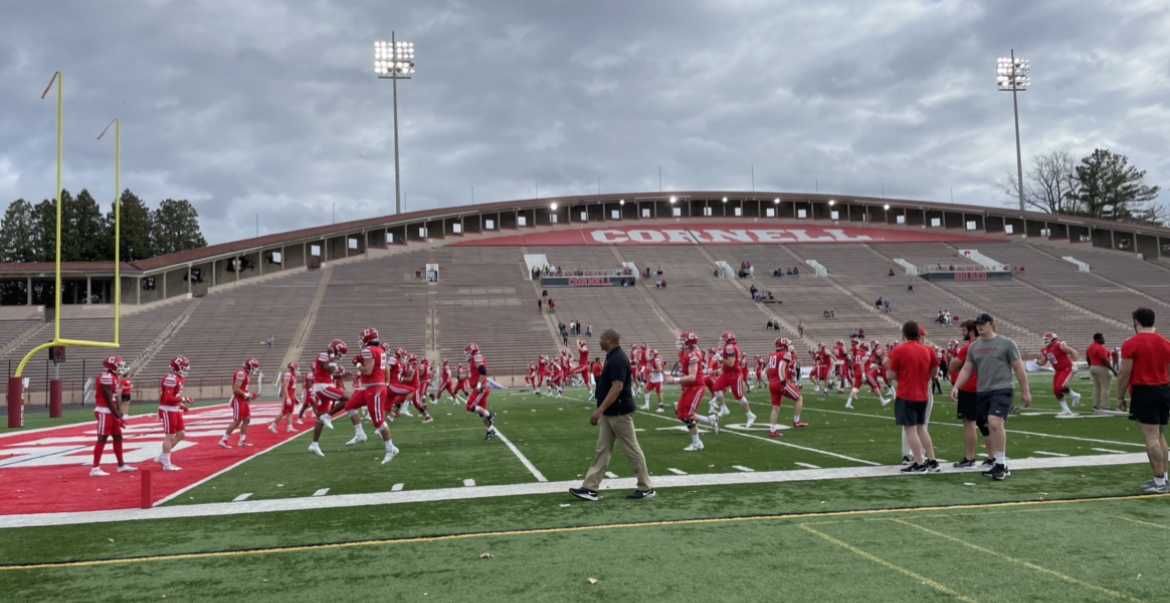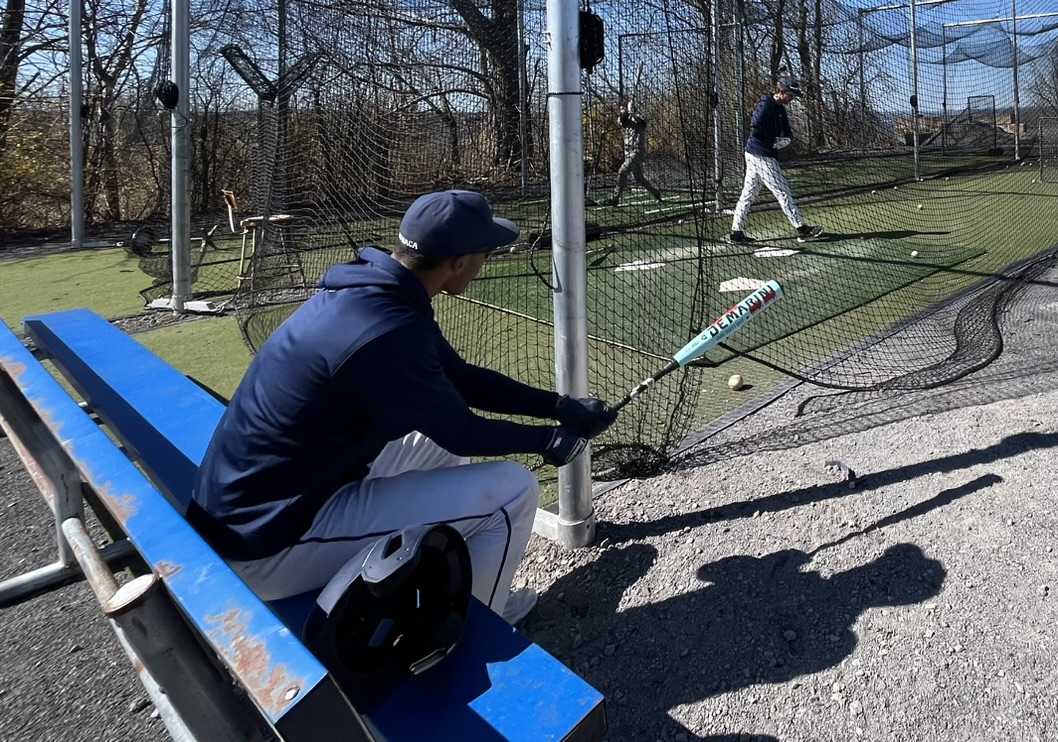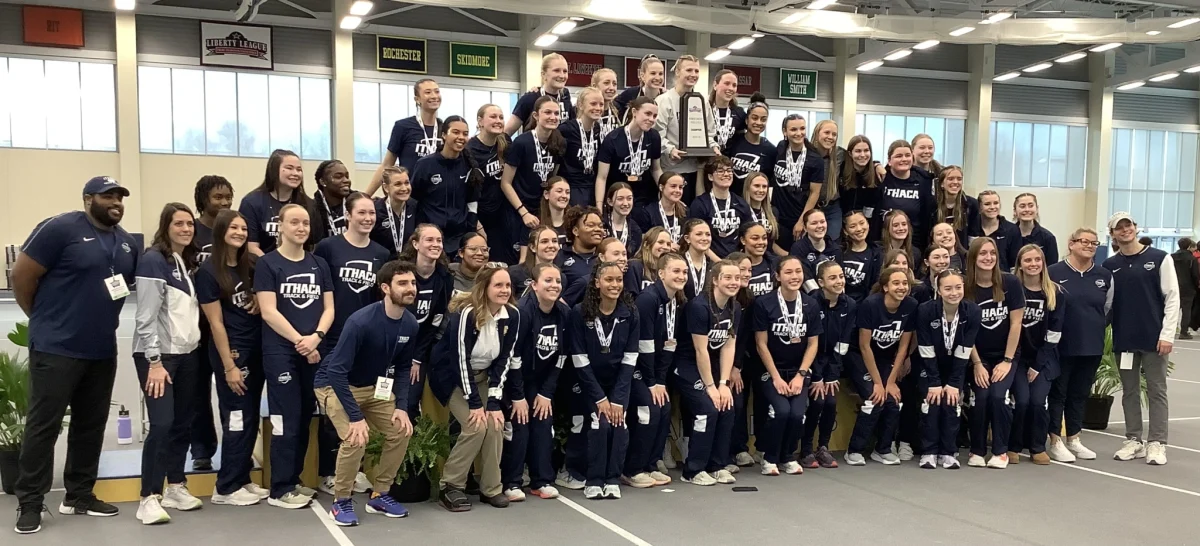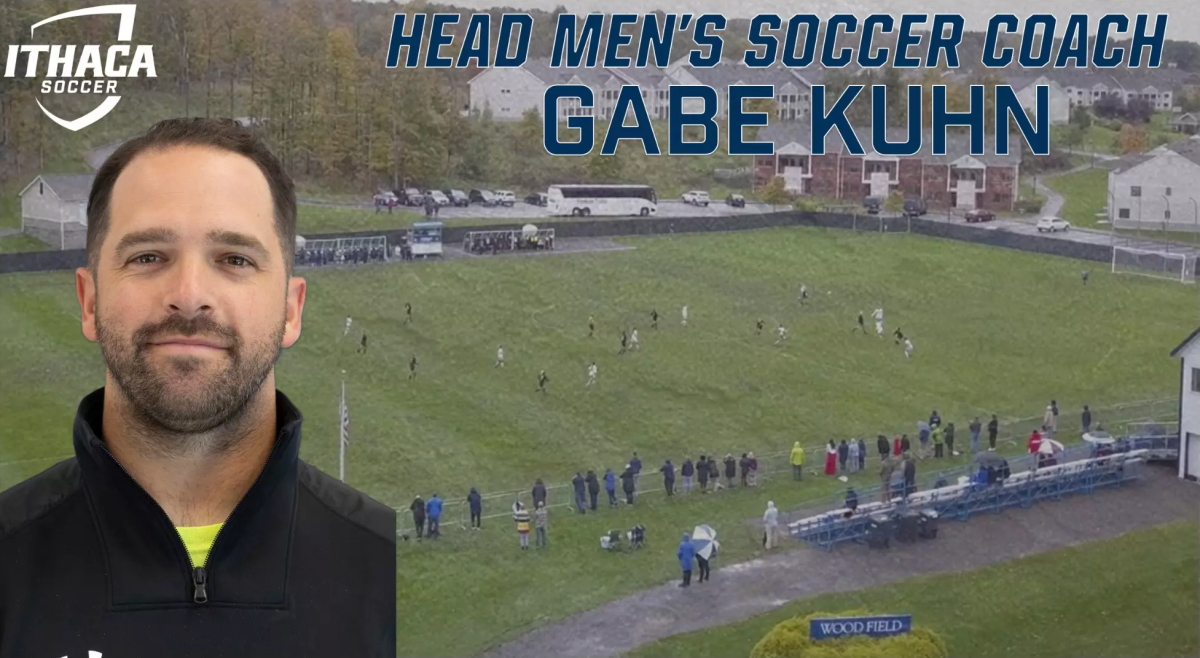When it comes to football, bigger is usually better. Every team wants the loudest fans, the most seats to a stadium and the most hulking players. However, a small offshoot of the sport looks at it differently — in sprint football, every player on the field must be 172 pounds or less, and the focus is on speed rather than size.
Cornell University hosts one of the country’s eight current sprint football programs. The league will be expanded to nine teams in 2017 with the addition of Caldwell University. The team competes in the Collegiate Sprint Football League and held its first game of the season against United States Naval Academy at 1 p.m. Sept. 17 at Schoellkopf Field. The Big Red ultimately lost to the Midshipmen 40–7. However, Cornell’s defense had some memorable field goals and extra point blocks later in the game. Sophomore center Max Beller said though the team made some mistakes, Cornell can hold its own, skill-wise, against teams as strong as Navy.

“When Navy or Army comes around, you know you have to play at a different level,” he said. “You know what they’re about. They’re not going to make mistakes. … It ratchets up the intensity during the week, because you know they’re going to bring it every time, but it makes it more exciting and more fun.”
While some sprint football programs like those of West Point Army and Navy recruit student-athletes from high school, senior linebacker Christopher D’Ambrosio, one of the team’s five captains, said Cornell doesn’t have a recruiting program. Instead, many players are attracted to the team because of their love for the sport.
“I wanted to play football when I came to college, but I wasn’t exactly big enough to make it in a big D-1 school,” he said. “The great thing about this sport is that there’s really very few differences between this and regular football, except we have a weight limit.”
D’Ambrosio said the team weighs in twice a week to make sure players are at or under the weight limit 48 hours before a game, and the team works with Cornell’s wrestling coaches and nutritionists for weight-management tips. The goal of the sport, he said, is to equalize the players, giving everyone an opportunity to continue playing the sport regardless of his weight.

“Sprint football is known as football for the common man,” he said. “The weight limit is actually based on the average weight of a college male, so before, it was 150 pounds. It’s increased over the years, so now it’s up to 172.”
The team also has a dedicated fan base, as evidenced by many parents and family members attending this weekend’s home game, and a small pep band keeping up spirits in the stands. There were even a handful of Navy fans sprinkled in among the stands, cheering for the Mids. Head coach Terry Cullen, leader of the Cornell Sprint Football program for the past 52 years — his father served as head coach before Terry picked up the mantel — said another hallmark of the Cornell sprint football legacy is its alumni.
“The alumni are very involved,” Cullen wrote in an email to Ithaca Week. “It’s a self-supported sport at Cornell with all the funds coming from former players. I have never figured out why they are so loyal and generous to the program. But they sure are.”

Senior quarterback Rob Panullo agreed that alumni not only help fund the sport, but also contribute in other ways to the sprint football community.
“Per person, as in per alum, we receive the most out of any varsity team at Cornell,” Panullo said. “Again, it just stems back to that really close sense of community. Sprint football gives what a lot of other teams don’t really have. … We have an alumni game, where the alumni come up and play against us every year. It’s an awesome opportunity for us to get guys to re-engage with the program who have already graduated.”
Beller said the team was his first family on campus and the sport brings people together who otherwise may not have met.
“I still hang out with all those guys regardless of us not joining the same fraternity, the same social groups, the same majors or stuff,” Beller said. “By nature of the sport, you kind of go through battle together, and no one can really take that from you.”


